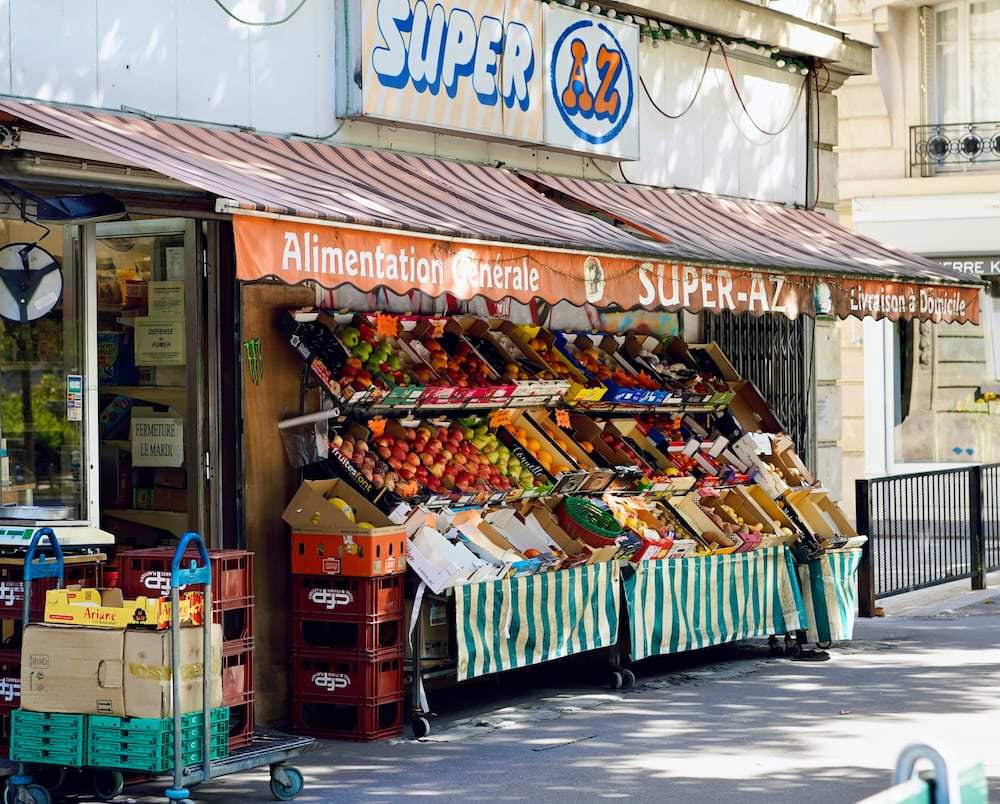verlan
Verlan is a form of French slang created by inverting syllables within words. The term verlan itself comes from l’envers (“the reverse”), reversed phonetically. It’s like changing “flipside” to “sideflip.” Verlan is mostly used in informal spoken French, often to mark social identity, humour, or secrecy. While once associated with street slang, many verlan words are now understood and used across France, even appearing in dictionaries.
Origins
Verlan appeared in the early 20th century but spread widely after World War II, particularly in Parisian working-class districts. It developed as a playful or secretive speech code and gained visibility through music, especially French rap, and cinema from the 1980s onwards.
How verlan works
Verlan reverses the syllables of a word, sometimes adjusting spelling to reflect pronunciation. It does not reverse letters but sounds. The result is often shortened or respelled for fluency.
Examples:
- femme → meuf
- fou → ouf
- bizarre → zarbi
- louche → chelou
Spelling changes are guided by sound, not orthography.
Some verlan words and phrases
- Beur → from arabe → “North African person”
- Un beur du quartier. = “A North African guy from the neighbourhood.”
- Blème → from problème → “Problem”
- Y’a pas de blème. = “No problem.”
- Boloss → from loser (via inversion and slang) → “Loser, idiot”
- Quel boloss ! = “What an idiot!”
- Chelou → from louche → “Shady, strange”
- Ce type est chelou. = “That guy’s dodgy.”
- Cimer → from merci → “Thanks” (often humorous or sarcastic)
- Cimer pour ton aide ! = “Thanks for your help!”
- Def → double verlan of ouf (from fou) → “Crazy”
- C’est def ici ! = “It’s insane here!”
- Feuk → double verlan of keuf (from flic) → “Cop” (rare, playful)
- Les feuks arrivent ! = “The cops are coming!”
- Feumeu → double verlan of meuf (from femme) → “Woman” (humorous)
- Une feumeu stylée. = “A stylish woman.”
- Fouf → from foufoune → “Vulva” (vulgar slang)
- Il pense qu’à la fouf. = “He only thinks about sex.”
- Keuf → from flic → “Cop”
- Les keufs patrouillent. = “The cops are patrolling.”
- Keum → from mec → “Guy, bloke”
- C’est un bon keum. = “He’s a good guy.”
- Laisse béton → from laisse tomber (“forget it”) → “Forget it, let it go”
- Laisse béton, c’est pas grave. = “Forget it, it’s no big deal.”
- (See Renaud’s song Laisse béton: YouTube link)
- Meuf → from femme → “Woman, girlfriend”
- C’est ma meuf. = “She’s my girlfriend.”
- Meufeur → from fumeur → “Smoker” (rare, humorous)
- Un meufeur régulier. = “A regular smoker.”
- Oim → from moi → “Me”
- Viens avec oim ! = “Come with me!”
- Ouf → from fou → “Crazy, amazing”
- C’est ouf ! = “That’s crazy!”
- Pécho → from choper → “To catch, hook up with”
- Il a pécho une fille. = “He hooked up with a girl.”
- Rebeu → double verlan of beur (from arabe) → “Arab person”
- Un rebeu du coin. = “An Arab guy from the area.”
- Refré → from frère → “Brother, mate”
- Ça va, refré ? = “How’s it going, bro?”
- Relou → from lourd → “Annoying”
- Il est relou. = “He’s annoying.”
- Reuch → from cher → “Expensive”
- C’est trop reuch ! = “That’s too expensive!”
- Reuf → from frère → “Brother”
- Mon reuf arrive. = “My brother’s coming.”
- Reum → from mère → “Mum”
- Ma reum cuisine. = “My mum’s cooking.”
- Reup → from père → “Dad” [pronounced “RErP”]
- Mon reup bosse. = “My dad’s working.”
- Teubé → from bête → “Stupid, idiot”
- T’es trop teubé ! = “You’re so dumb!”
- Teuf → from fête → “Party”
- On va à une teuf ce soir. = “We’re going to a party tonight.”
- Teuch → from chatte → “Vulva” (vulgar slang)
- Ferme ta teuch. = “Shut up.” (rude)
- Téma → from mate → “Look (at)”
- Téma la bagnole ! = “Look at the car!”
- Téma le keum → from mate le mec → “Look at the guy”
- Téma le keum là-bas ! = “Check out that guy over there!”
- Tocard → possibly from cardot (old slang) → “Idiot, loser”
- Quel tocard ! = “What a loser!”
- Tocardé → from tocard → “Messed up”
- C’est trop tocardé. = “That’s all messed up.”
- Tromé → from métro → “Metro”
- J’prends le tromé. = “I’m taking the metro.”
- Vénère → from énervé → “Angry”
- Il est vénère. = “He’s angry.”
- Zarbi → from bizarre → “Weird”
- C’est zarbi, ton truc. = “Your thing’s weird.”
- Zikmu → from musique → “Music”
- J’écoute de la zikmu. = “I’m listening to music.”
Double verlan
Double verlan occurs when a verlan word becomes too common and is reversed again to preserve secrecy or for comic effect.
Examples:
- Femme → meuf → feumeu
- Arabe → beur → rebeu
- Flic → keuf → feuk
- Fou → ouf → def
These second-level inversions are often playful and short-lived.
Grammatical behaviour
Verlan words keep the same gender and function as their originals:
- Une meuf (feminine) ← une femme (feminine)
- Un keum (masculine) ← un mec (masculine)
They follow normal plural and adjectival agreement.
Verlan in everyday French
Once marginal, verlan is now widely recognised across age groups and regions. Words like chelou, meuf, ouf, and relou appear even in mainstream media. However, its use in formal contexts remains inappropriate.
Summary
- Verlan reverses syllables to create slang forms.
- It originated in working-class French and became mainstream through music and film.
- Many verlan words are now widely understood.
- Double verlan exists but is rarer and mostly playful.
- Verlan words keep their grammatical gender and function.






